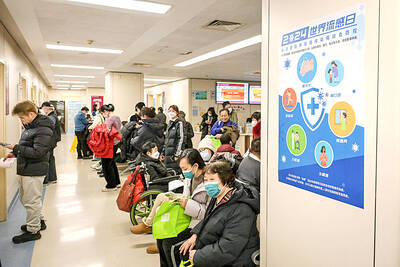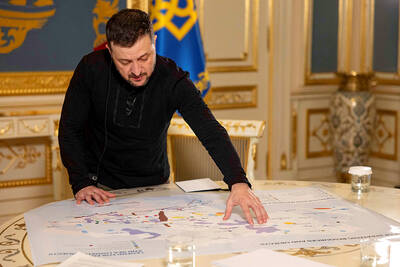Canada’s opposition threatened on Monday to force the country’s fourth snap elections in five years, rejecting the ruling Conservatives’ economic recovery plan as “just not good enough.”
The government, however, appeared not to budge.
Liberal leader Michael Ignatieff told a press conference that the minority government’s quarterly update on measures it has taken to stimulate a dour economy provided too few details, and he demanded more.
Failing that, Canadians can expect to be politicking over their summer holidays, instead of lazily basking in the sun at lakeside cottages, he said.
“The government’s answers in this accountability report just aren’t good enough. The government’s performance in parliament just isn’t good enough,” Ignatieff said.
“Canadians don’t want an election. I don’t want an election. But our job [as the official opposition] means standing up for our principles, standing up when the government lets Canadians down,” he said.
Canada entered a recession late last year.
Since then, its first budget deficit in more than a decade has climbed to C$50.2 billion (US$46 billion) this year, in part to fulfill a promise to G8 partners to boost government spending to help stimulate the global economy.
Both the leftist New Democrats and separatist Bloc Quebecois said they would vote against rolling out the next big chunk of spending.
Although Harper described the government’s multibillion-dollar economic stimulus as the largest per capita of any industrialized nation, the New Democrats and Bloc said it was “inadequate.”
Ignatieff offered Harper time to address his specific concerns about purported delays in infrastructure spending, the ballooning deficit, offering more help to unemployed workers, and healthcare woes.
“But he cannot expect us to continue to support [the government] on the basis of a [fiscal] report and a performance like this,” he said. “Canadians deserve better.”
In the House, Harper urged opposition parties to be “responsible” in uncertain economic times and to support the government or risk scuttling 3,000 infrastructure projects underway or ready to go, as part of the stimulus plan.
Appearing humbled, Harper said he was open to “dialogue” with Ignatieff about policy changes for the next parliamentary session due to start in September.
“But I think demanding major undefined changes [to public policies] in the space of a few days is not a realistic approach, so I would discourage that,” he said.
If Ignatieff’s wish list is not met, the government could face a confidence vote as early as Friday.

Thousands gathered across New Zealand yesterday to celebrate the signing of the country’s founding document and some called for an end to government policies that critics say erode the rights promised to the indigenous Maori population. As the sun rose on the dawn service at Waitangi where the Treaty of Waitangi was first signed between the British Crown and Maori chiefs in 1840, some community leaders called on the government to honor promises made 185 years ago. The call was repeated at peaceful rallies that drew several hundred people later in the day. “This government is attacking tangata whenua [indigenous people] on all

RIGHTS FEARS: A protester said Beijing would use the embassy to catch and send Hong Kongers to China, while a lawmaker said Chinese agents had threatened Britons Hundreds of demonstrators on Saturday protested at a site earmarked for Beijing’s controversial new embassy in London over human rights and security concerns. The new embassy — if approved by the British government — would be the “biggest Chinese embassy in Europe,” one lawmaker said earlier. Protester Iona Boswell, a 40-year-old social worker, said there was “no need for a mega embassy here” and that she believed it would be used to facilitate the “harassment of dissidents.” China has for several years been trying to relocate its embassy, currently in the British capital’s upmarket Marylebone district, to the sprawling historic site in the

A deluge of disinformation about a virus called hMPV is stoking anti-China sentiment across Asia and spurring unfounded concerns of renewed lockdowns, despite experts dismissing comparisons with the COVID-19 pandemic five years ago. Agence France-Presse’s fact-checkers have debunked a slew of social media posts about the usually non-fatal respiratory disease human metapneumovirus after cases rose in China. Many of these posts claimed that people were dying and that a national emergency had been declared. Garnering tens of thousands of views, some posts recycled old footage from China’s draconian lockdowns during the COVID-19 pandemic, which originated in the country in late

BACK TO BATTLE: North Korean soldiers have returned to the front lines in Russia’s Kursk region after earlier reports that Moscow had withdrawn them following heavy losses Ukrainian President Volodymyr Zelenskiy on Friday pored over a once-classified map of vast deposits of rare earths and other critical minerals as part of a push to appeal to US President Donald Trump’s penchant for a deal. The US president, whose administration is pressing for a rapid end to Ukraine’s war with Russia, on Monday said he wanted Ukraine to supply the US with rare earths and other minerals in return for financially supporting its war effort. “If we are talking about a deal, then let’s do a deal, we are only for it,” Zelenskiy said, emphasizing Ukraine’s need for security guarantees